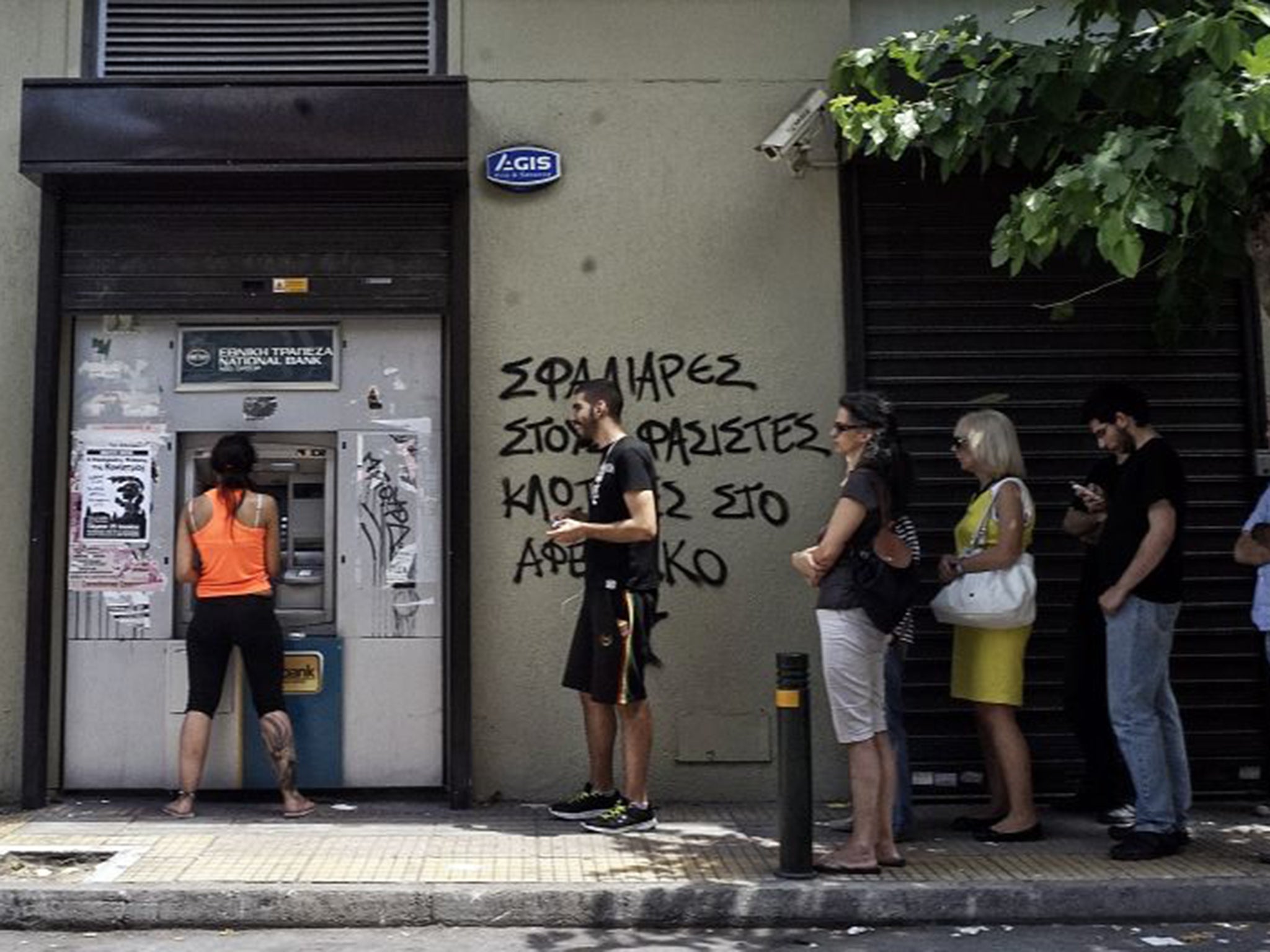Greece crisis Q&A: Ahead of Tuesday's bailout deadline, what options do the Greeks have?
Alexis Tsipras has called for a referendum by the Greek people on the bailout

Your support helps us to tell the story
From reproductive rights to climate change to Big Tech, The Independent is on the ground when the story is developing. Whether it's investigating the financials of Elon Musk's pro-Trump PAC or producing our latest documentary, 'The A Word', which shines a light on the American women fighting for reproductive rights, we know how important it is to parse out the facts from the messaging.
At such a critical moment in US history, we need reporters on the ground. Your donation allows us to keep sending journalists to speak to both sides of the story.
The Independent is trusted by Americans across the entire political spectrum. And unlike many other quality news outlets, we choose not to lock Americans out of our reporting and analysis with paywalls. We believe quality journalism should be available to everyone, paid for by those who can afford it.
Your support makes all the difference.What will happen on Tuesday?
The other eurozone countries have refused to extend emergency lending to the Greek government. Unless they change their minds, Greece will default on a loan payment it has to make to the International Monetary Fund on Tuesday.
Could Greece default and still stay in the euro?
Not really. The rules of the euro require members to repay their debts. But there is no procedure for a country to leave the eurozone. It may be possible to put together a deal that pretends Greece hasn’t defaulted, but this would still require real money to be paid to the IMF.
Would the referendum in Greece be about whether to leave the euro?
In effect. Until now, most Greeks have said that they want to stay in the euro but don’t accept the price insisted on by the country’s creditors. It may be that Alexis Tsipras, the prime minister elected on an anti-austerity platform in January, called the referendum to try to force more concessions from creditors. If so, it didn’t work. Greek officials have denied that it is a referendum on Greece’s status in the eurozone or the euro – but many others will see it as such.
So will the referendum go ahead?
Probably. It may be that Mr Tsipras also wants to force the Greek people to take responsibility for a decision he thinks is inevitable. He hasn’t made it explicit that the “No” vote for which he has asked would mean abandoning the euro, but it is hard to see how it can mean anything else.
What if Greece is forced from the euro?
The European Central Bank would lose a lot of money. Controls on banks may be able to stave off the collapse of the entire Greek financial system for five days, but keeping the banks open for that long will probably not be feasible.
Would leaving the euro help Greece?
It would be painful in the short term. Introducing a new currency is likely to be disorderly. Interest rates will be high, with the government seen as a credit risk and still having to balance its books. An exit would be unprecedented.
Subscribe to Independent Premium to bookmark this article
Want to bookmark your favourite articles and stories to read or reference later? Start your Independent Premium subscription today.
Join our commenting forum
Join thought-provoking conversations, follow other Independent readers and see their replies
Comments